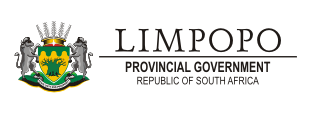
Provincial Economy and Investment
Provincial Economy
The Provincial Growth and Development Strategy (PGDS) represents both development opportunities and provincial challenges. These are parameters for formulation of detailed operational plans and the identification of specific instruments for delivery and transformation.
It further identifies a 5-year multi-sectoral growth and development strategic plan of the Provincial Government. The strategy is supported by the following policies/strategies:
- Strengthening the public education system;
- Improving the skills of the provincial economy through TVETs and Universities.
- Building a capable workforce.
- Forming strategic partnerships to drive skills development in the growth points;
- Focusing on higher education, training, research and innovation, and aligning bursary awards with the required skills in the provincial economy;
- Promoting entrepreneurship.
Investment
For more information click the link below;
link: www.ledet.gov.za
Limpopo is the natural resource treasure chest of South Africa, if not the whole of southern Africa. It boasts some of the greatest reserves of agriculture, mineral and tourism resources many of which remain hugely under-exploited. The province is also linked to the Maputo Development Corridor through Phalaborwa Spatial Development Initiative, a network of road and rail corridors connecting to the major seaports will open up Limpopo and surrounding regions for trade and investment. This is complimented by the presence of airports in major centres of the province including Ellisras, Makhado, Musina, Phalaborwa, Mokopane, Thabazimbi, Tzaneen, Thohoyandou and Bela-Bela as well as the Gateway International airport in Polokwane.
In terms of Agriculture Limpopo could be described as the garden of South Africa and or the whole continent, given its rich fruit and vegetable production. The province produces 75% of the countrys mangoes, 65% of its papaya, 36% of its tea, 25% of its citrus, bananas, and litchis, 60% of its avocados, two thirds of its tomatoes, 285,000 tons of potatoes. Other products include coffee, nuts, guavas, sisal, cotton and tobacco, timber with more than 170 plantations. Apart from all these, there is cotton, sunflower, maize, wheat cultivation as well as grape. Most of the higher lying areas are devoted to cattle and game ranching, earning a reputation for quality biltong, a popular South African delicacy of salted, dried meat.
Limpopo is also endowed with the abundance of its mineral resources, locating mining as the critical sector of the economy in the Province, which contributes 22% of the GGP. The platinum group include platinum itself, chromium, nickel, cobalt, vanadium, tin, limestone and uranium clay. Other reserves include antinomy, phosphates, fluorspar, gold, diamonds, copper, emeralds, scheelites, magnetite, vermiculite, silicon, mica, black granite, corundum, feldspar and salt.
Already the Chinese company, Rockfield Pty., has set up a granite mining venture here with the raw material being processed into mosaic tiles.
As if all this is not enough there are financial incentives through a package put down by the National Government. A wide range of incentives to investors include, a tax holiday for up to six years. As a result of this potential the Provincial government has established LEDET (Limpopo Economic Development and Tourism). It offers a wide range of services to entrepreneurs and investors interested in setting up business in the Limpopo. It specialises in helping to attract inward investment companies to find the best opportunities for acquisitions or green field investments in the Limpopo. This includes setting up joint ventures with local partners, cross holdings of equity between an overseas and local partner or collaborative agreements in the field such as research and development, transfer of technology or sales and distribution.
